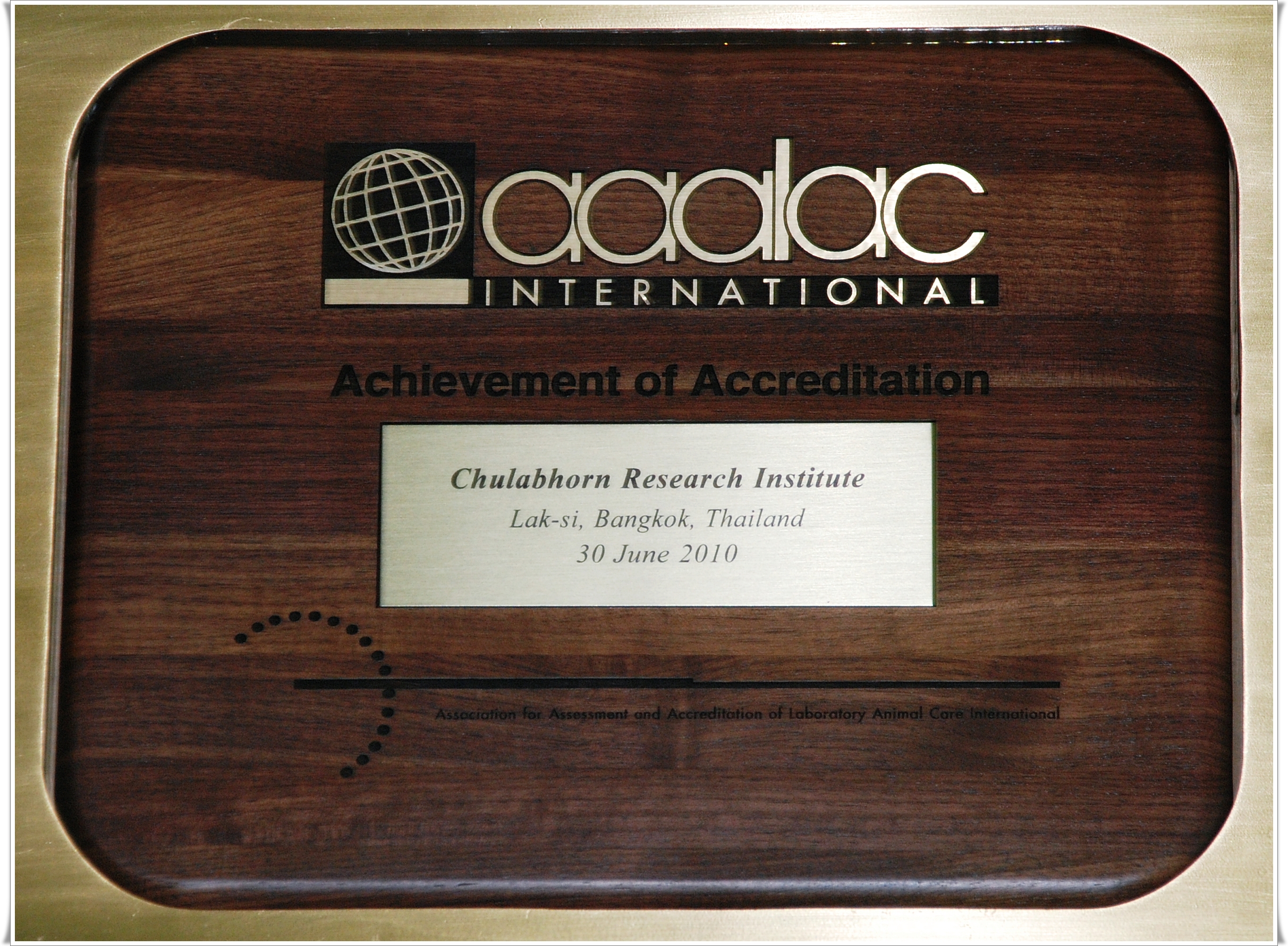The research animal facility at the Chulabhorn Research Institute (CRI) has been accredited by the Association for Assessment and Accreditation of Laboratory Animal Care International (AAALAC International) since 2010. The facility is managed according to principles and guidelines in Animals for Scientific Purposes Act, Guide for the Care and Use of Laboratory Animals, 8th ed. (US National Research Council), as well as the Ethical Principles and Guidelines for the Use of Animals for Scientific Purposes (National Research Council of Thailand, Ministry of Science and Technology), and CRI’s Animal Care and Use Program (ACUP), policies, and procedures are detailed in a Program Description, CRI Policy Statement on Institutional Animal Care and Use Committee and Animal Protocol Review, and standard operating procedures, respectively
The 2 main objectives of CRI’s ACUP, and its associated policies and procedures are:
– To ensure that laboratory animal experiments are conducted in accordance with the highest scientific, humane, and ethical principles, as stated in the Guide for the Care and Use of Laboratory Animals, and to ensure that the welfare of the laboratory research animals is given high priority in any consideration regarding care and use of the animals; and
– To ensure the quality of the animal research conducted in the facility, and the resultant research data collected, by eliminating any potential modifying factors related to the care and use of the animals
Animal research conducted at CRI includes that on malaria, the search for new anti-malarial drugs, and factors affecting susceptibility to malarial infection; studies on animal models of various types of cancers; toxicity of metals, pesticides and air pollutants; acute and chronic toxicity of chemicals found in natural sources; and the health effects of climate change. Additionally, as some of the research conducted at CRI, particularly that related to drug development, must be conducted according to the Good Laboratory Procedure (GLP) guidelines that have been implemented, it is Institute policy to develop animal research accordingly.



